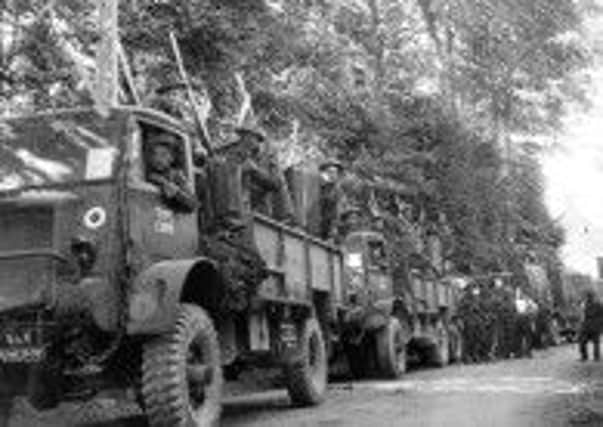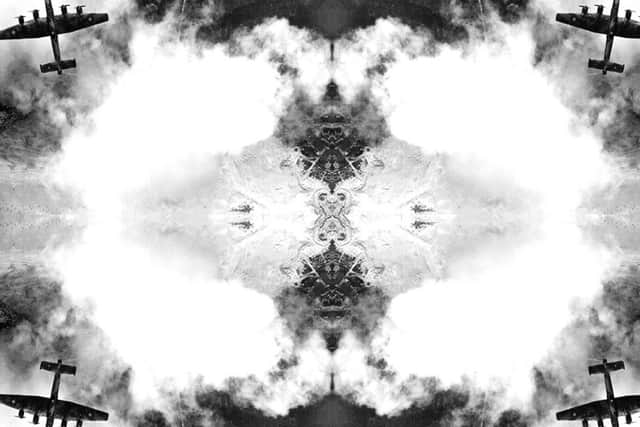City supported wounded following D-Day invasions -how the Express reported the events from 70 years ago


Within a week of that heart-stirring announcement, on Monday last, over 200 of those gallant men who had taken part in the assault on Hitler’s European fortress arrived in Wakefield as casualties.
They arrived in a hospital train; men who had shared in the glory of breaking the enemy’s ‘impregnable’ Atlantic Wall; men who in those fateful first hours of savagery on and off the coasts of Normandy had suffered grievous injuries.
Advertisement
Hide AdAdvertisement
Hide AdThe Mayor of Wakefield, Coun C. Hopkinson, was at the station and cordially shook hands with as many of the wounded as was possible before they were conveyed in ambulance to the Pinderfields Hospital.


There were several Americans, five French and Germans among the casualty cases. In the same train too were several German prisoners who continued their journey under armed escort to another destination.
Stretcher bearers and ambulance workers from Civil Defence Service, which included many voluntary workers, had charge of the detraining arrangements and a thoroughly efficient duty they performed.
On Tuesday, press representatives were permitted to visit Pinderfields Hospital and have bedside interviews with the casualties.
Advertisement
Hide AdAdvertisement
Hide AdMen from the Army and Navy were there, safely returned to harbour for rest and it is hoped rapid recuperation.
All spoke with uncurbed enthusiasm of what they considered to have been a job well done, the laying of a foundation which led to the ultimate success of allied arms, but they were equally as insistent in their desire to damp down any indulgences in foolish optimism or wishful thinking.
As some of them frankly indicated without any spirit of defeatism in their pronouncements “We are only in the sibling stage as yet. It is a long and hard road to Berlin.”
Representatives of both the army and navy showed reticence a strong disinclination in some stances to speak of one service without the other.
Advertisement
Hide AdAdvertisement
Hide AdWhilst all credit was due to the troops who landed, it was most heartening to hear the loved praise of the soldiers for the services rendered by the navy and air force.
Soldiers and sailors from North, South, East and West are in Pinderfields building up a grand example of espirit de corps as they quietly chat or alternatively make their voices travel the distance of several beds to another buddie.
In a search for men whose homes are in the districts where this report will circulate, an Express reporter first found Private Jack Robinson of 20 Berry’s Yard Horbury, sitting up in bed enjoying a cigarette and smiling.
Jack, at 18 years of age, appeared to be the baby in point of years. He was probably the youngest to step ashore with the invasion troops.
Advertisement
Hide AdAdvertisement
Hide AdOnly seven months ago, Private Robinson, of a North County regiment, who has a leg wound, was a butcher’s apprentice with Mr Bradley at the corner of Queen Street, Horbury.
When he stepped ashore, the water reached up to his neck when on his way to the beach.
He told the Express that his group did not meet any opposition, not even from the air, until they got to the assembly area.
Then they encountered enemy land forces near a wood. They saw nothing of the Luftwaffe.
Advertisement
Hide AdAdvertisement
Hide AdPrivate Robinsion who received his wound when crossing a railway embankment after he had been ashore for two days said they lived on iron rations except for apple cider and milk brought to them by a French farmer.
The Frenchman refused any payment for his services despite the risk he ran but his tiny daughter accepted payment in the form of chocolate from the British Tommies.
Private John Francies Butel, 27, of a southern regiment, whose home is at 16 St. John’s, North Wakefield, was wounded in the left foot and was among the returned invasion troops but unfortunately his condition did not permit him being interviewed.
Published in the Wakefield Express on 17 June 1944.
Pictures courtesy of the RAF Benevolent Fund